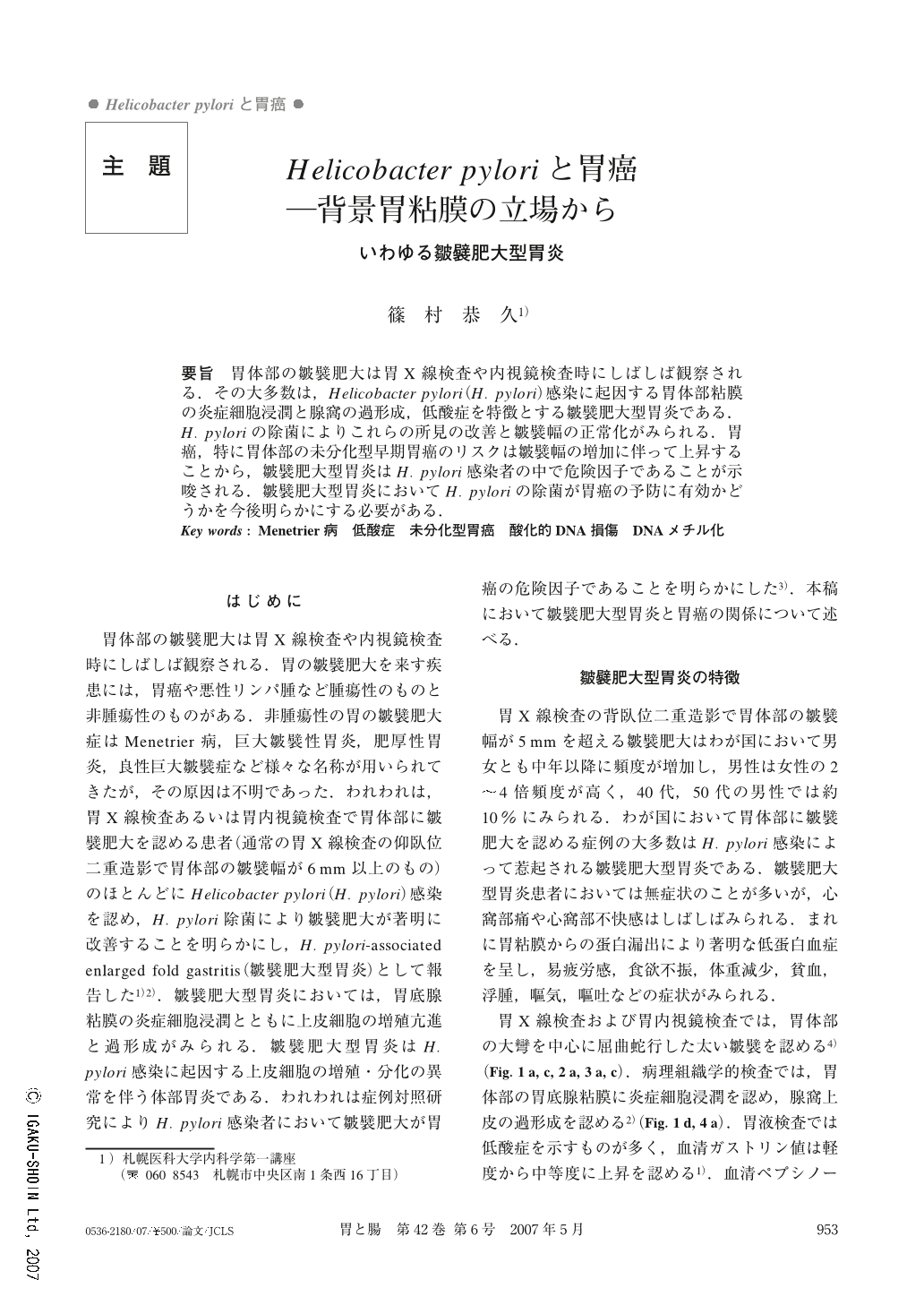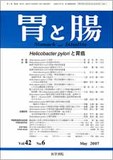Japanese
English
- 有料閲覧
- Abstract 文献概要
- 1ページ目 Look Inside
- 参考文献 Reference
要旨 胃体部の皺襞肥大は胃X線検査や内視鏡検査時にしばしば観察される.その大多数は,Helicobacter pylori(H. pylori)感染に起因する胃体部粘膜の炎症細胞浸潤と腺窩の過形成,低酸症を特徴とする皺襞肥大型胃炎である.H. pyloriの除菌によりこれらの所見の改善と皺襞幅の正常化がみられる.胃癌,特に胃体部の未分化型早期胃癌のリスクは皺襞幅の増加に伴って上昇することから,皺襞肥大型胃炎はH. pylori感染者の中で危険因子であることが示唆される.皺襞肥大型胃炎においてH. pyloriの除菌が胃癌の予防に有効かどうかを今後明らかにする必要がある.
Enlarged folds in the gastric corpus are often observed during radiographic or endoscopic examination of adults. A major cause of enlarged gastric folds is Helicobacter pylori (H. pylori)-induced enlarged fold gastritis that is characterized by foveolar hyperplasia and inflammatory infiltrates in the corpus mucosa and hypochlorhydria. The fold width and the findings mentioned recover normal range by the eradication of H. pylori. The odds ratio for gastric carcinoma and the prevalence of diffuse type early gastric carcinoma in the corpus region increased with increasing fold width. Therefore, enlarged fold gastritis may be a risk factor for gastric carcinoma among H. pylori-infected persons. Further investigation is needed to clarify whether eradication of H. pylori is effective for the prevention of gastric carcinoma in persons with enlarged fold gastritis.

Copyright © 2007, Igaku-Shoin Ltd. All rights reserved.


